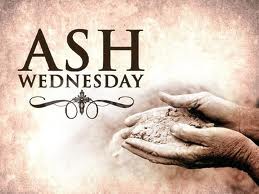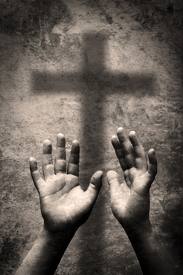 I grew up in a liturgical church. So from my childhood into my early adulthood, I observed the church calendar. Ash Wednesday marked a real turning point in the calendar year. It was a turn from comfort, frivolity, and enjoyment (think Mardi Gras) to a time of repentance, self-denial, and mortification called Lent.
Ash Wednesday was a day when we all remembered that someday we would each die and face our Maker. The priest would put the sign of the cross on our foreheads in black ashes and say,
I grew up in a liturgical church. So from my childhood into my early adulthood, I observed the church calendar. Ash Wednesday marked a real turning point in the calendar year. It was a turn from comfort, frivolity, and enjoyment (think Mardi Gras) to a time of repentance, self-denial, and mortification called Lent.
Ash Wednesday was a day when we all remembered that someday we would each die and face our Maker. The priest would put the sign of the cross on our foreheads in black ashes and say,
Remember, Man, that thou art dust and unto dust thou shalt return. [based on Genesis 3:19]
 A very sobering reminder...and I took it all very seriously.
A very sobering reminder...and I took it all very seriously.
Even though I'm not a part of a liturgical congregation now, I think it's a good thing to remember that death is up ahead for each of us.
But why death? The Bible says,
The wages of sin is death... Romans 6:23a
But the good news is
...the gift of God is eternal life through Jesus Christ our Lord. Romans 6:23b
Pastor and Bible teacher, Chuck Swindoll, takes the symbolism of the ashen cross a step further. He says,
The mark is a sign of Christ's ownership of the person and a symbol of sorrow for sins...We are His possessions and a true appreciation for the cost of our salvation begins with an understanding of the seriousness of sin.
So while Ash Wednesday reminds us of our sin and our mortality, we can look ahead to Good Friday and Easter Sunday because we are His possession. We know the end of the story, and (as someone has said) "We win"...because HE won!

He himself bore our sins in his body on the tree, that we might die to sin and live to righteousness. By his wounds you have been healed. 1Peter 2:24
Since the children have flesh and blood, he too shared in their humanity so that by his death he might break the power of him who holds the power of death—that is, the devil— and free those who all their lives were held in slavery by their fear of death. Hebrews 2:14-15
“Death is swallowed up in victory.”
“O death, where is your victory?
O death, where is your sting?”
...thanks be to God, who gives us the victory through our Lord Jesus Christ. 1 Cor 15:54-57
+++++++++++++++++++++++++++++++++++++++++++++++++++++++++++++++
 For more about Lent and Ash Wednesday, visit the Voice blog.
For more about Lent and Ash Wednesday, visit the Voice blog.
 A "must view" by the author of Almost Amish
A "must view" by the author of Almost Amish
+++++++++++++++++++++++++++++++++++++++++++++++++++++++++++++++++
Coming soon: Lenten meditations: Jesus' Last Words from the Cross
Subscribe via email (right) or RSS (top right)

















